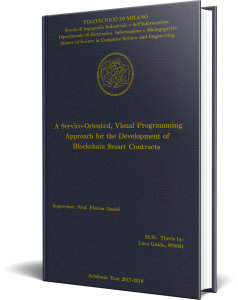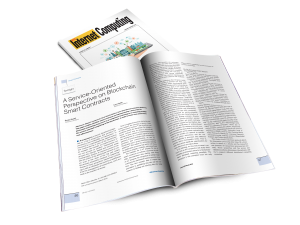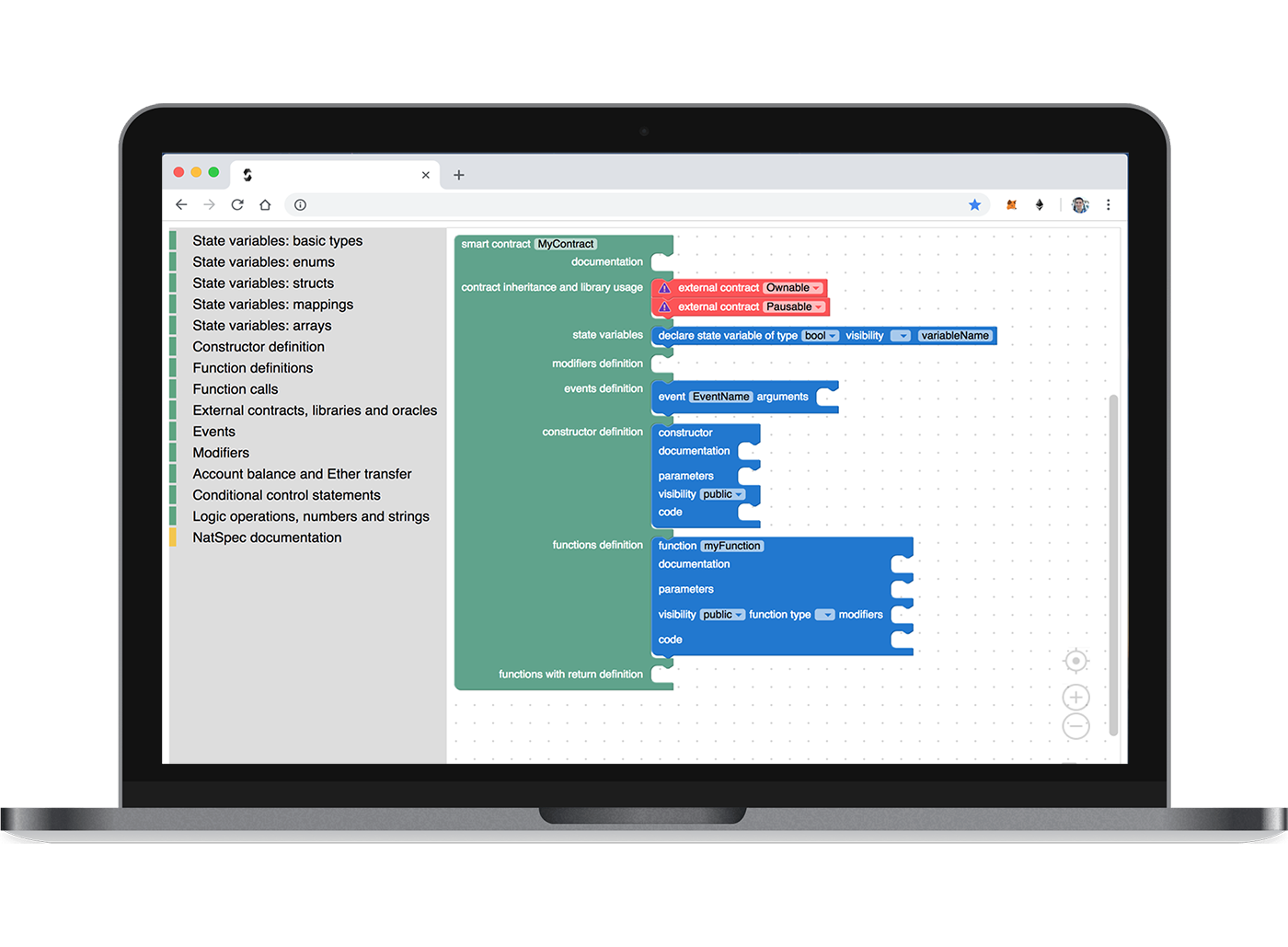 The thesis investigates whether smart contracts as implemented by state-of-the-art blockchain technology can be exploited as building blocks of a new service-oriented, trustworthy computing paradigm. Moreover, it proposes a methodology and a tool to support the development of smart contracts, their description, and their composition, in order to foster the reuse of widely tested contracts and libraries, thus improving the overall compliance with security and programming best practices and increasing cost-effectiveness. More specifically, this research proposes a formal description format and a registry prototype for Ethereum smart contracts, thus facilitating their discovery and reuse. Furthermore, it introduces a block-based visual programming editor prototype for Ethereum smart contracts, thus addressing the lack of tools supporting the development process. Both the prototypes have been tested and assessed through the development of a case study in the insurance field.
The thesis investigates whether smart contracts as implemented by state-of-the-art blockchain technology can be exploited as building blocks of a new service-oriented, trustworthy computing paradigm. Moreover, it proposes a methodology and a tool to support the development of smart contracts, their description, and their composition, in order to foster the reuse of widely tested contracts and libraries, thus improving the overall compliance with security and programming best practices and increasing cost-effectiveness. More specifically, this research proposes a formal description format and a registry prototype for Ethereum smart contracts, thus facilitating their discovery and reuse. Furthermore, it introduces a block-based visual programming editor prototype for Ethereum smart contracts, thus addressing the lack of tools supporting the development process. Both the prototypes have been tested and assessed through the development of a case study in the insurance field.
Related publications:
- Luca Guida and Florian Daniel, Supporting Reuse of Smart Contracts Through Service Orientation and Assisted Development, IEEE International Conference on Decentralized Applications and Infrastructures, San Francisco, USA, 2019.
- Florian Daniel and Luca Guida, A Service-Oriented Perspective on Blockchain Smart Contracts, IEEE Internet Computing, vol. 23, no. 1, pp. 46-53, 2019.

